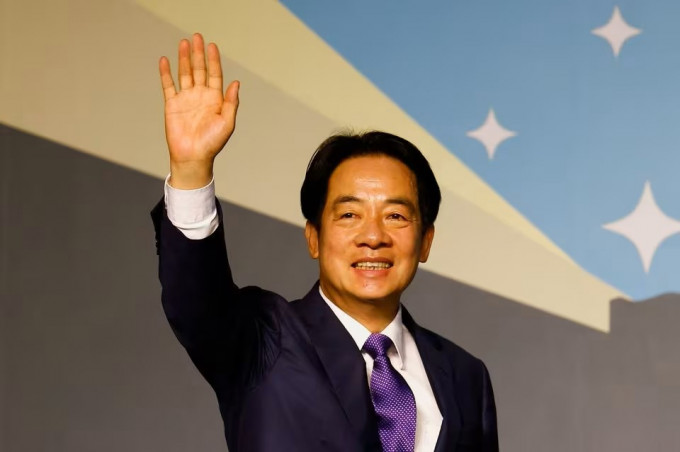Taiwan's New Era Confronts Chinese Assertion
As Taiwan inaugurates a new president, discussions around its sovereignty intensify. Beijing remains firm on the one-China policy, while the international community watches.
Published May 22, 2024 - 00:05am

Image recovered from std.stheadline.com
The political landscape surrounding Taiwan is under renewed scrutiny as the island ushers in Lai Ching-te as its new president. Lai has reiterated the commitment to maintain the status quo in the Taiwan Strait, addressing both the Taiwanese people and international dignitaries that gathered for the inauguration ceremony on Monday. The event, resonating with symbolic programs and multicolored smoke from the air force, was a preview of Taiwan's steadfast approach towards its democratic progression amidst pressure from China.
Current discussions are heavily influenced by China's unwavering stance on the one-China policy, a position that has been emphatically supported by South Africa among other nations. At a recent symposium, South Africa lauded China's efforts against separatist activities in Taiwan, reinforcing its long-standing allegiance to the one-China principle. This support was echoed by 37 Japanese parliamentarians attending Lai's inauguration, marking a high-water moment for Japanese presence at such an event.
Analysts across the board express varied views on the situation. Some perceive the ascension of Lai, self-described as a 'practical worker for Taiwan independence', with skepticism, doubting the prospect of an optimistic turn in cross-Strait relations. On the other hand, the international endorsement Taiwan has been receiving, including past support from the Trump administration and solidarity with Hong Kong's pro-democracy protests, has significantly strengthened Taiwan's global visibility and arguably its economy as well. Despite domestic contentions over economic policies, Taiwan's weighted stock index has seen an appreciable escalation.
China's stern message that Taiwan's independence movement is a 'dead end', however, continues to loom over the island. A recent statement from Beijing disregarded internal politics as inconsequential to the historical and legal fact that both sides of the strait belong to one China. Newly sworn-in President Lai advocates for peaceful dialogue, urging Beijing to respect the choices made by the Taiwanese electorate and to cease military intimidation.
The geopolitical tensions overflow into humanitarian impacts, particularly the controversial policies regarding Hong Kongers seeking refuge in Taiwan. The Tsai administration faces criticism from some quarters for not being decisive enough in aiding those fleeing the crackdown in Hong Kong. On the flip side, others point out the complexity of absorbing a vast migrant population under the shadow of potential infiltration from mainland China.
As President Lai Ching-te takes office, he faces the formidable challenge of navigating Taiwan's complex relationship with its colossal neighbor across the Strait. This task is complicated by recent global shifts and uncertainties, including the changing dynamics of U.S.-China relations under the Biden administration. The United States, while not formally recognizing Taiwan as a sovereign state, has played an influential role in indirectly shaping Cross-Strait relations through arms sales, high-level visits, and increasingly supportive legislative acts.
On the economic front, Taiwan has made significant strides, notably with its semiconductor industry being at the forefront of global supply. The island has become indispensable in the intricate chain of tech manufacturing, thus giving it an economic leverage. Despite facing potential economic coercion from Beijing, Taiwan's economic ties with other countries have grown, exemplified by trade agreements and investment deals, such as the recent signing of a five-year extension of the Trade and Investment Framework Agreement (TIFA) with the U.S.
The inauguration of President Lai also comes at a time when the international community is closely watching the developments in the Indo-Pacific region. The Quadrilateral Security Dialogue (Quad) — comprising the U.S., India, Japan, and Australia — has been gaining traction and may play a pivotal role in ensuring a free and open Indo-Pacific, with some analysts suggesting that Taiwan could be an implicit security concern for the Quad.
Lai's political track record as the former Vice President and Premier of Taiwan offer a glimpse into his upcoming tenure. His administration is expected to push for deeper international engagement, enhancing Taiwan's participation in international organizations, and continuing robust self-defense initiatives. All these factors contribute to a complex tapestry of regional politics, where Taiwan must carefully balance its domestic agendas with international diplomatic maneuvering.
The issue of identity has also been a recurring theme in Taiwan's politics with Lai being a proponent of a distinct Taiwanese identity separate from China. The younger generation in Taiwan has shown a strong preference for identifying themselves as Taiwanese rather than Chinese, a sentiment that has underpinned the island's gradual political shift. This has further implications for the cross-Strait relationship and Taiwan's own internal cultural and political landscape.
On top of geopolitical and economic concerns, President Lai's tenure is also expected to witness the complexities associated with public health, as the COVID-19 pandemic continues to exert pressure on global leaders. Taiwan's successful management of the pandemic has been commended internationally, and the island has demonstrated a level of agility and preparedness that many countries seek to emulate. Keeping this momentum will be critical to maintaining both domestic stability and international confidence in Taiwan's governance.
In synthesis, President Lai Ching-te assumes office at a historic moment, as Taiwan navigates diplomatic isolation, military threats, economic opportunities, and a global health crisis. His leadership will be pivotal in steering the island toward a future that not only preserves its sovereignty and democratic values but also cements its international standing. As President Lai's term begins, the world watches with keen interest to see how Taiwan's story will unfold amidst the tides of global change and regional security dynamics.







